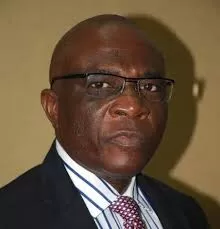
NIGERIA WAS NOT HUMILIATED AT UNHRC ELECTION – PRESIDENCY
The presidency has denied claims that Nigeria failed to win votes at the United Nations Human Rights Council election held at the UN General Assembly last Wednesday (9 October).
In a statement posted on X, the Special Adviser to the President (Information & Strategy), Bayo Onanuga, stated that the African regional group nominated five countries namely, Benin, Gambia, Kenya, DRC, and Ethiopia for the five seats allotted to the continent. He said this move eliminated the need for an election.
“There was no competition in the African regional group, as the continent fielded the same number of candidates as available seats. Contrary to information circulating, Nigeria was not snubbed in this election, as some reports have falsely claimed.
“The country did not stand as a candidate for this cycle of elections, just like it did not stand for election in 2023 when a Nigerian medium sensationally reported that the country earned three votes,” he stated.
Mr Onanuga said just like in 2023, Nigeria focused on offering support to countries who have been nominated by the African regional group. This he said, mirrors President Bola Tinubu’s leadership strategy in fostering unity on the African continent.
“The regional bloc endorsed Benin and Gambia, both members of ECOWAS, for the 2025-2027 term. Given Nigeria’s continued leadership in fostering African unity, the nation focused on supporting the endorsed candidates to promote collective African representation.
“This has been the hallmark of President Bola Tinubu’s leadership on the continent. This strategic approach aligns with Nigeria’s long-standing diplomatic efforts to ensure Africa speaks with a united voice on the global stage,” he added.
Explaining how Nigeria got the few votes, which triggered the speculation of Nigeria being snubbed in the election, he said, “Whatever vote was recorded for our country must have been cast in error in the secret balloting by some countries which thought Nigeria was on the ballot.”
The Human Rights Council election
The United Nations General Assembly elected 18 members to the Human Rights Council for a three-year term from 1 January 2025 to December 2027.
The Human Rights Council is a vital part of the United Nations system, comprising 47 member states that work together to promote and protect human rights globally. Its primary goal is to address human rights violations and make recommendations to improve human rights situations.
Those elected to the council using a secret ballot system are Benin, Bolivia, Colombia, Cyprus, Czechia, Democratic Republic of the Congo, Ethiopia, Gambia, Iceland, Kenya, Marshall Islands, Mexico, North Macedonia, Qatar, Republic of Korea, Spain, Switzerland and Thailand.
They will join Albania, Algeria, Bangladesh, Belgium, Brazil, Bulgaria, Burundi, Chile, China, Costa Rica, Côte d’Ivoire, Cuba, Dominican Republic, France, Georgia, Germany, Ghana, Indonesia, Japan, Kuwait, Kyrgyzstan, Malawi, Maldives, Morocco, Netherlands, Romania, South Africa, Sudan and Vietnam.
Reports suggesting that other countries think Nigeria does not deserve a seat on the Human Rights Council cast a shadow on President Tinubu’s administration.
Members of the UNHRC are expected to uphold human rights, and members who are deemed to violate these rights lose votes and are not elected into the council.
In extreme cases, the General Assembly may vote to suspend membership when gross violations are recorded.
Nigeria has been a regular UN Human Rights Council member since 1967. However, the country experienced two significant interruptions between 1982-1987 and 1991-1999. These periods coincided with a time of military rule, widespread human rights violations, electoral violence, and repression.
Although Nigeria has successfully maintained a democratic form of government for 25 years, the country’s human rights record has not improved significantly.
 Premium News
Premium News